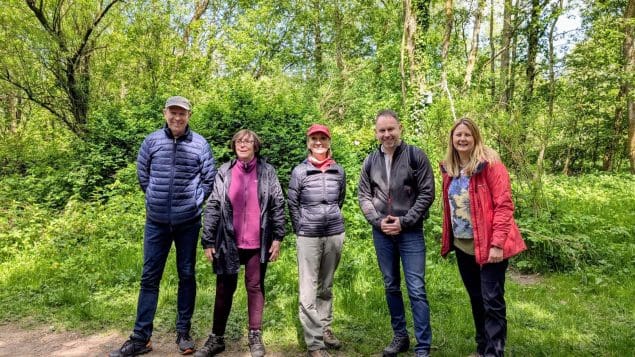Reflections on Walking & Coaching

Last week, I had the pleasure of joining the Walking & Coaching event hosted by the British School of Coaching – a practical, immersive session exploring the benefits of bringing coaching into nature. As a coach who integrates nature into much of my work through Komorebi Coaching, this felt like a space of alignment, connection, and renewal.
We were lucky with the weather again – blue skies and fresh air added a lightness to the experience that couldn’t be replicated indoors. There’s something about being outside that naturally softens the edges of our thinking. It encourages presence, creativity, and a sense of ease – and as I’ve found, it also has a profound impact on the quality of the coaching conversation itself.
One of my key takeaways was how a more relaxed and informal approach – walking side by side rather than sitting face to face – can actually fast-track rapport building. The rhythm of walking and the absence of a desk or screen between us often leads to deeper, more meaningful conversations. It creates space for clients to open up and reflect in a way that feels safe, natural, and grounded.
As a group, we also reflected on the mindset shift that walking coaching might require – not just for coaches, but for clients too. Many people may need gentle encouragement to try this approach, particularly if they’re used to back-to-back meetings and desk-bound days. Some may even feel guilty about taking time out of their working day to go for a walk, despite the fact that the space and movement can significantly enhance the clarity and depth of their thinking. The truth is, investing time outdoors with a coach isn’t time lost – it’s time that ultimately leads to sharper focus, greater productivity, and more meaningful progress.
Of course, we also explored the practical side – particularly the importance of clear contracting. While nature offers incredible richness as a co-facilitator, it also introduces extra layers of logistics – from route planning and weather considerations to maintaining confidentiality. Done well, though, the rewards are truly transformative.
Personally, I came away from the session feeling recharged and inspired. The more I coach outside, the more I realise how much I was missing during the years I spent largely behind a screen. There is something deeply restorative about reconnecting with the natural world – not just for clients, but for coaches too.
Taking a mindful approach to coaching in nature allows us to slow down, be fully present, and tune into subtleties that might otherwise go unnoticed. It invites both coach and client into a more expansive, creative space – one where new perspectives and possibilities can emerge.
A heartfelt thank you to the British School of Coaching for creating this opportunity, and for donating all proceeds to Mind, a charity doing vital work in the mental health space. I’m grateful to have been part of this session and to continue evolving my practice alongside a supportive and reflective coaching community.
Rebecca May






